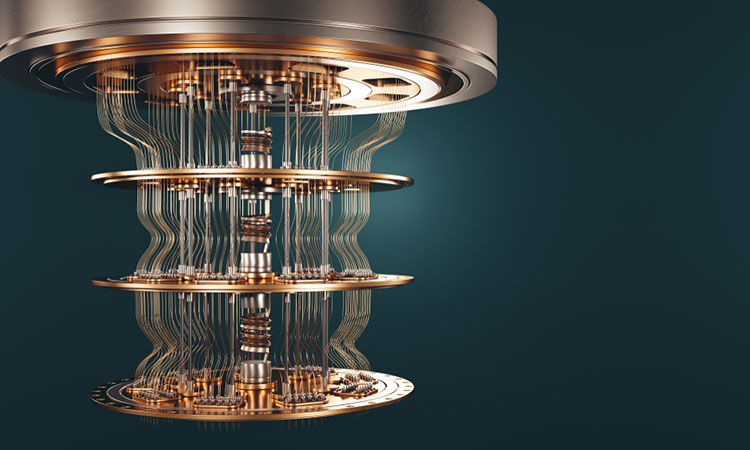Quantum computers: the next step for drug discovery
Posted: 1 November 2022 | Izzy Wood (Drug Target Review) | No comments yet
A $1.2 million National Science Foundation grant funds project to use quantum AI to create effective pharmaceuticals faster and cheaper.


A $1.2 million National Science Foundation grant will help a team of Penn State, US researchers to study the use of quantum computer-based artificial intelligence (AI), to see if quantum computers can bring drugs to patients faster and cheaper.
The time it takes medicines to move from discovery to approved use for patients can take decades and cost billions of dollars, so this grant offers an opportunity to completely change the drug to patient process.
Quantum computing differs from classical computers because quantum devices use quantum bits (qubits), rather than classical bits. While bits can only be in binary positions of 1 and 0, qubits rely on the quantum mechanical principle of superposition that allow them to be in 1 and 0 positions simultaneously.
Qubits can also be entangled, which means their states are intricately correlated. Theoretically, the devices’ computational potential increases exponentially for every qubit the scientists can entangle.
According to Dr Swaroop Ghosh, associate professor of electrical engineering and computer science and the grant’s principal investigator, these abilities give quantum computers the possibility of delivering exponentially more processing power to better handle certain complex problems.
Ghosh added that using AI models designed for quantum computers could be ideal for drug discovery, an area limited by current classical computing processing power.
“Currently, the pace of Federal Drug Administration (FDA) approval of new compounds is only about 40 novel compounds per year. Accelerating drug discovery by computationally screening a massive number of compounds promises to significantly reduce the costs and time for finding effective new cures against diseases. Unlike the traditional computational drug screening approaches that target libraries of billions of compounds, utilising quantum computers along with novel AI-driven algorithms promise to cover a vastly larger chemical space,” commented Professor Nikolay Dokholyan, Penn State College of Medicine and co-principal investigator for the project.
The researchers were particularly interested in leveraging quantum AI to design drug treatments that could inhibit Ras family of proteins, which would be important for cancer treatments and cures.
Quantum AI-designed therapies will not happen overnight, the researchers warn. Several challenges face the use of the technology, Ghosh said. Currently, quantum computers that are available currently are termed noisy intermediate-stage quantum computers (NISQ). NISQ devices tend to offer a limited number of qubits to process computations and require considerable error correction to make up for mistakes introduced by environmental noise, such as heat or electromagnetism.
“Quantum AI suffers from issues that are more fundamental in nature, such as unavailability of training data in the quantum form, all the way to resource-related issues such as limited number of qubits and long wait queue for access to real hardware,” he added.
However, quantum AI may be more expressive, meaning the technology can model a target probability distribution even with a limited number of qubits and parameters to explore possible solutions.
Despite the challenges, the team is excited to take these first steps toward exploring the combined power of AI and quantum computing.
“Quantum AI’s true potential in solving real-world problems remains unexplored,” said Ghosh. “This project will fill this void by exploring various quantum AI models that will employ noisy quantum computers.”
Related topics
Drug Discovery, Informatics, Lab Automation, Targets
Related organisations
National Science Foundation, University of California (UC)
Related people
Dr Swaroop Ghosh, Professor Nikolay Dokholyan








